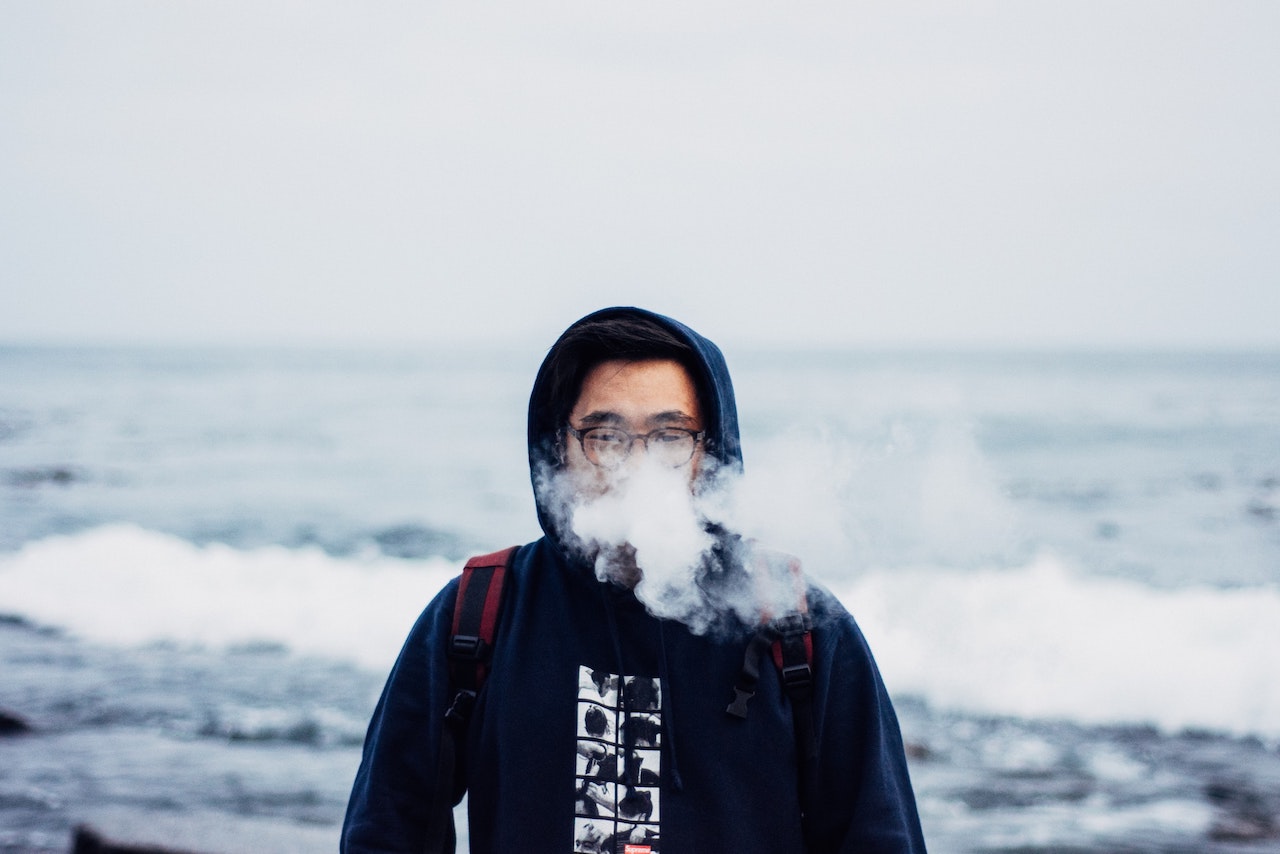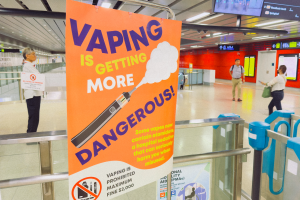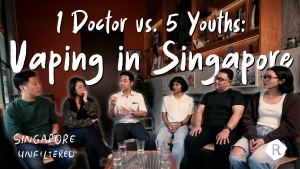Everyone knows someone who vapes.
Instead of smoking combustible cigarettes, these friends, friends of friends, or acquaintances puff on e-cigarettes or heated tobacco products, which sometimes emit huge clouds made up of vapour.
These e-cigarettes and heated tobacco products have been scientifically proven to be less harmful than combustible cigarettes, while also useful in getting smokers to quit altogether. But if you’ve been keeping up with the news, then the fact that we all know someone who vapes can suddenly feel like an epidemic just waiting to happen.
In the U.S, an outbreak of lung injury and respiratory illness linked to the use of e-cigarettes/vapes is currently sweeping the nation. And the statistics are alarming.
According to the Centre of Disease Control and Prevention (CDC), as of 8th October 2019, 26 people have died from this mysterious illness. And the total number of people affected currently stands at 1,299, an increase of 219 cases from just the previous week.
In other words, with the number of Singaporeans vaping, it’s only a matter of time before the illness surfaces on our shores.

What’s most worrying about the growing number of victims is that to date, doctors still have no clue about what’s actually causing the illness. Only e-cigarette/vape use connects them, and the specific compound or mixture of chemicals causing lung injuries has yet to be identified. Although most cases appear similar, there exists a possibility that the cases involve different diseases with merely similar presentations.
As such, both the U.S Food and Drug Administration (FDA) and CDC agree that more information is needed—such as the specific products used, what substances they contained, and where they were obtained.
Thus far, it has only been reported that most patients admitted to a history of using tetrahydrocannabinol (THC, the principal psychoactive ingredient of cannabis)-containing products. This is where things start to get a little clearer, because what’s noteworthy is where these products came from: the street.
In a statement released by the FDA on 4th October 2019, they strongly advised against the procurement and usage of illegal or “street vapes”.
“… Additionally, consumers who choose to use any vaping products should not modify or add any substances such as THC or other oils to products purchased in stores and should not purchase any vaping products, including those containing THC, off the street or from other illicit channels.”
The CDC reiterated the message: “To date, national and state data suggest that products containing THC, particularly those obtained off the street or from other informal sources (e.g., friends, family members, or illicit dealers), are linked to most of the cases and play a major role in the outbreak.”
This is undoubtedly relevant to Singaporeans. With the vape ban in Singapore, everyone is getting their products off the street.
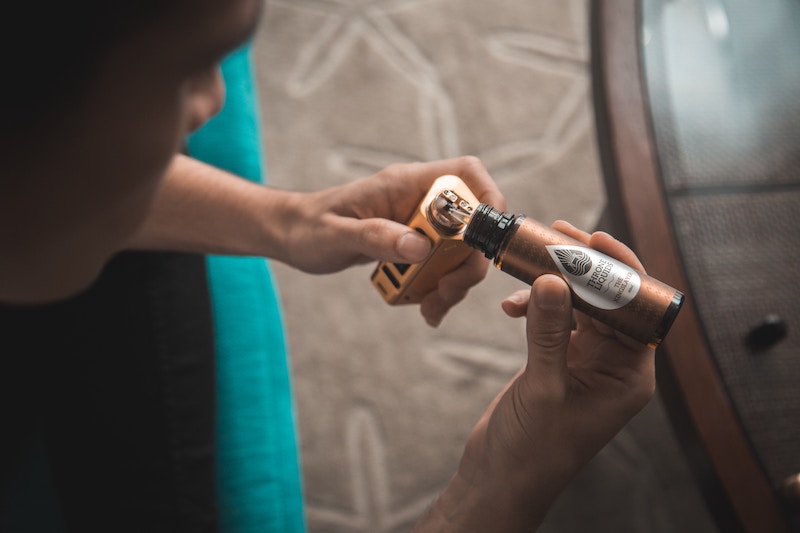
Ask any of the people who vape where they get their refills from, and the most common answer you’ll get is: “From a guy.”
Because vaping isn’t legal in Singapore, local vapers have no choice but to turn to the black market for their e-cigarettes/vapes or refills. And here’s the problem with black markets: sellers are in no way legally or morally obligated to ensure you get what you pay for. Buyers also have no way of verifying the authenticity and safety of the products they purchase.
It’s a dangerous game of chance, ending only when someone either winds up dead or in the hospital.
28-year-old Isabel Low* is all too familiar with this game. As a self-described “moderate to heavy smoker”, Isabel bought an e-cigarette from a friend’s boyfriend two years ago in a bid to curb her smoking habit. She managed to stop smoking combustible cigarettes almost entirely. But when her cartridges ran out, she had to return to her friend for more. Isabel admits she doesn’t know where he gets them from.
Aaron Teo*, 32, shares that he gets his refills of vape juice from a “contact” in Malaysia—where there are no specific regulations governing the sale and use of non-nicotine vaporisers and e-cigarettes. Yet, anyway.
But like Isabel, he too has no idea if what he’s getting is actually legit.
In fact, it’s actually not all that difficult to get alternative smoking products in Singapore. Costly, yes. Impossible to find, no. Just a few days ago, The Straits Times published an article exploring Singapore’s now-underground vape culture.
In certain convenience and hardware stores around the island, you can apparently have your pick of vape capsules or e-cigarettes. All it takes are the right code words and a recommendation from someone the seller trusts (probably), for an under-the-table deal to be struck. Again, because the sales aren’t regulated, there’s no way of verifying the authenticity of the products.
On top of this, in a poll of 200 people done by ST, it was found that around 14% were vape users, with 10% saying they vape often (at least once a week). This means that even in a relatively small sample size of 200 people, 28 still vape despite vaping and other alternative tobacco products being illegal here.
But what does this all mean?
Essentially: a significant number of Singaporeans are using electronic smoke-free alternatives of dubious origin. And that it’s only a matter of time before the mystery vaping-related illness arrives in Singapore.
The good news is, we can actually do something about this.

In the interest of protecting public health, the Singaporean government has done a great number of things.
For example, raising the minimum legal age for smoking, banning point-of-sale display of tobacco products, and banning smoking along Orchard Road. Most recently, the government also mandated that all tobacco products sold have to have standardised packaging and enlarged graphic health warnings.
And yet, they seem to forget that there exists a group of Singaporeans who are simply too addicted to nicotine to quit smoking.
Despite what the posters tell you, quitting smoking is not easy. It’s not just about having enough willpower to resist the urge to have a puff, nor is smoking is just a “bad habit”. Rather, it’s a complex addiction that has physical, mental, and emotional aspects. Addiction rewires the brain.
At this point, it doesn’t matter whether people are vaping because they like vaping, or because vaping has been scientifically proven to be less harmful than cigarettes, and actually helpful in getting them to eventually quit.
What matters is that people are vaping, in a country where all vapers have no choice but to resort to dodgy dealings with people they don’t know.
What happens when they lose that game of chance, winding up in either the hospital or morgue?
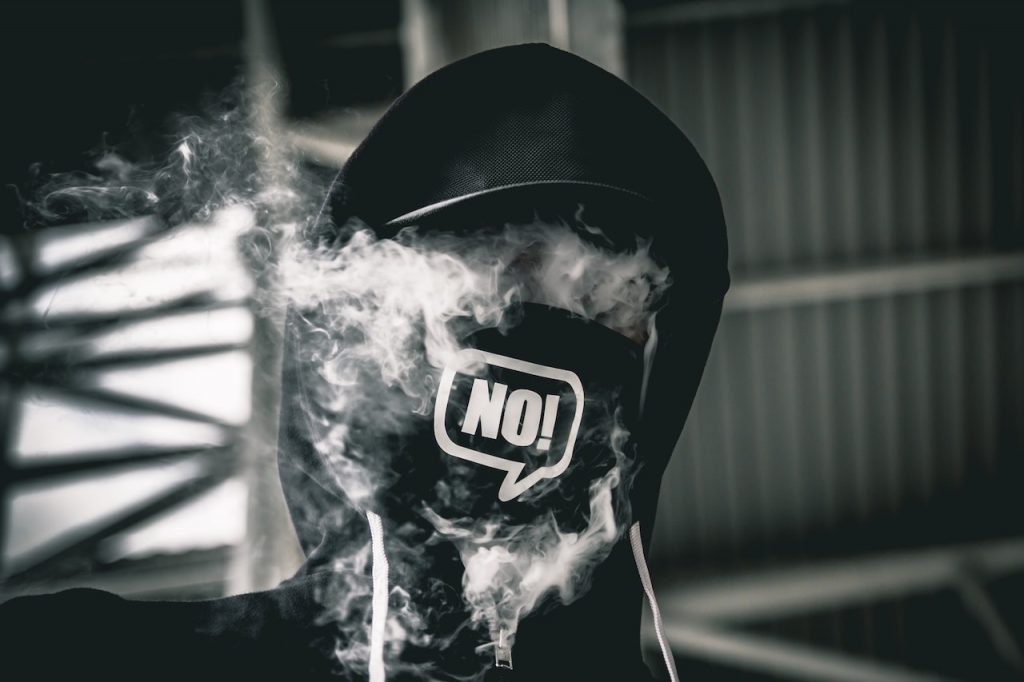
We can avoid getting to this point in the first place by doing something simple: regulate these smoke-free alternatives to cigarettes.
Legalise e-cigarettes and vaping, and the other heat-not-burn tobacco products, so the government can actually control what’s going into their citizens’ lungs. Instead of driving vape culture underground, have it out in the open, then regulate it.
If the goal is to be more effective in increasing overall smoking cessation rates, while also being beneficial to overall public health, then this must be the approach. Smokers will benefit from less harmful e-cigarettes, and non-smokers can enjoy cleaner air.
Of course, I’m not saying that legalisation of these alternative tobacco products will and should override all the other smoking cessation measures already in place. E-cigarettes/vapes should not be made accessible to the underaged and definitely should not be advertised or glorified.
I’m just saying that legalisation and regulation should, at the very, very least, be considered.
Surely that isn’t too much to ask?
Have something to say about this story? Talk to us: community@ricemedia.co

